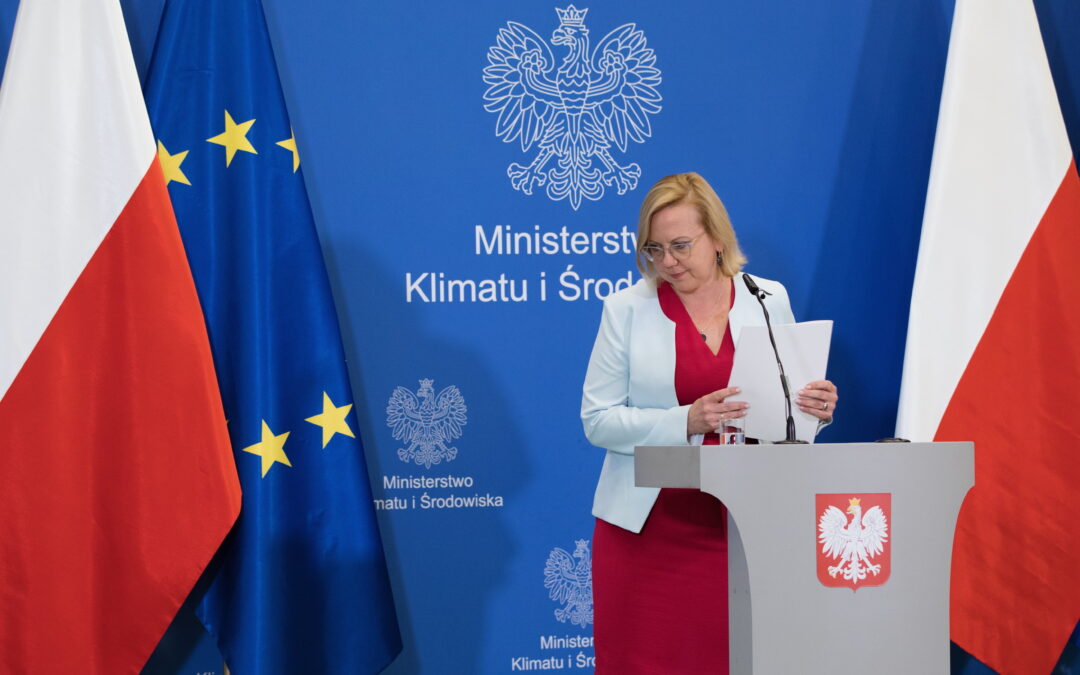Poland announced yesterday it filed a case against Germany at the European Court of Justice (ECJ) over Berlin’s alleged failure to remove waste that was illegally transported to Poland. This step comes after last month’s decision by the European Commission supporting Polish claims against Germany.
According to Poland’s climate ministry, a total of 35,000 tonnes of waste entered Poland between 2015 and 2018, ending up mostly in southwestern provinces. Poland has repeatedly intervened with Germany at the state and federal level, calling for its removal.
“We have prepared a complete complaint to the ECJ against Germany regarding waste. It’s almost a thousand pages of documents and hard evidence”, tweeted the outgoing climate minister Anna Moskwa yesterday, on her last day in office.
Wspólnie z @SzSz_velSek przygotowaliśmy kompletną skargę do TSUE na Niemcy w temacie odpadów. To prawie tysiąc stron dokumentów i twardych dowodów. Jeszcze dzisiaj skarga będzie wysłana do Trybunału.
— Anna Moskwa (@moskwa_anna) November 27, 2023
Former deputy climate minister, Jacek Ozdoba, claimed in May this year that there are seven sites in Poland “where Germany is evading responsibility and breaking [EU] treaty policy” by not removing waste allegedly brought there by German companies.
Since then, Poland filed a complaint to the European Commission in July, which constituted the first step in the process of bringing the case before the ECJ. “On the basis of Article 259 of the Treaty on European Union, we are launching the first stage of the proceedings,” explained Szymon Szynkowski vel Sęk, now the newly nominated foreign minister and then EU minister who has been overseeing the issue alongside Moskwa.
In response to Poland’s announcement, the spokesman for Germany’s environment ministry, Christoper Stolzenberg, told broadcaster Polsat that responsibility for dealing with such waste disposal issues lies with individual German states rather than the federal government.
In October, the European Commission finished reviewing the complaint and concluded that Germany had “breached its obligations by failing to collect waste from one location (Tuplice) within 30 days and, to a certain extent, by failing to collect waste from another location (Stary Jawor)”.
“We demand that the authorities in Berlin collect the waste left behind in the coming days. If they do not do this immediately, the next step is an application to the ECJ”, tweeted Moskwa in response. The Commission’s decision opened the way for Poland then to file its complaint to the ECJ, which will now review the matter.
If the court finds that Germany has failed to fulfill its obligations, Berlin will be required to take the necessary measures – in this case, most probably having to remove the waste from Polish territory. If Germany fails to comply, the ECJ may then impose a penalty payment.
In the past year, dumps containing illegally imported waste caused a heated domestic political dispute in Poland. Following a major fire at a warehouse storing chemicals in July, the waste problem saw the Polish government and opposition blaming one another.
Moskwa accused the former ruling coalition made up of Civic Platform (PO) and Polish People’s Party (PSL) of allowing the waste imports to happen in the first place. “The PO and PSL government created an El Dorado for rubbish in Poland.”
Meanwhile, PO politician Michał Szczerba accused the Law and Justice (PiS) party of making Poland “an importer of waste,” while party leader Donald Tusk equated the “stench of burning waste” with the “stench of PiS corruption in Poland”.
In practice, the data on waste imports during the rule of both parties to Poland are hard to compare due to a legislative change in 2013 that allowed some non-toxic waste, such as paper, plastic, metal and glass, to be imported on the same terms as in the entire European Union – without the written consent of the authorities.
However, the data from 2013 onwards indicates that between 2015, when PiS came to power, and 2019, the annual amount of toxic waste brought to Poland from abroad increased from 154,000 tonnes to over 434,000 tonnes. Around 61% of the imports in the latter year came from Germany, as noted by fact-checking website OKO.press.

Notes from Poland is run by a small editorial team and published by an independent, non-profit foundation that is funded through donations from our readers. We cannot do what we do without your support.
Main image: Dawid Żuchowicz / Agencja Wyborcza.pl

Agata Pyka is a former assistant editor at Notes from Poland. She specialises in Central and Eastern European affairs, cybersecurity, and investigative reporting. She holds a master’s degree in political communication from the University of Amsterdam, and her work has appeared in Euractiv, the Balkan Investigative Reporting Network (BIRN), and The European Correspondent, among others.



















